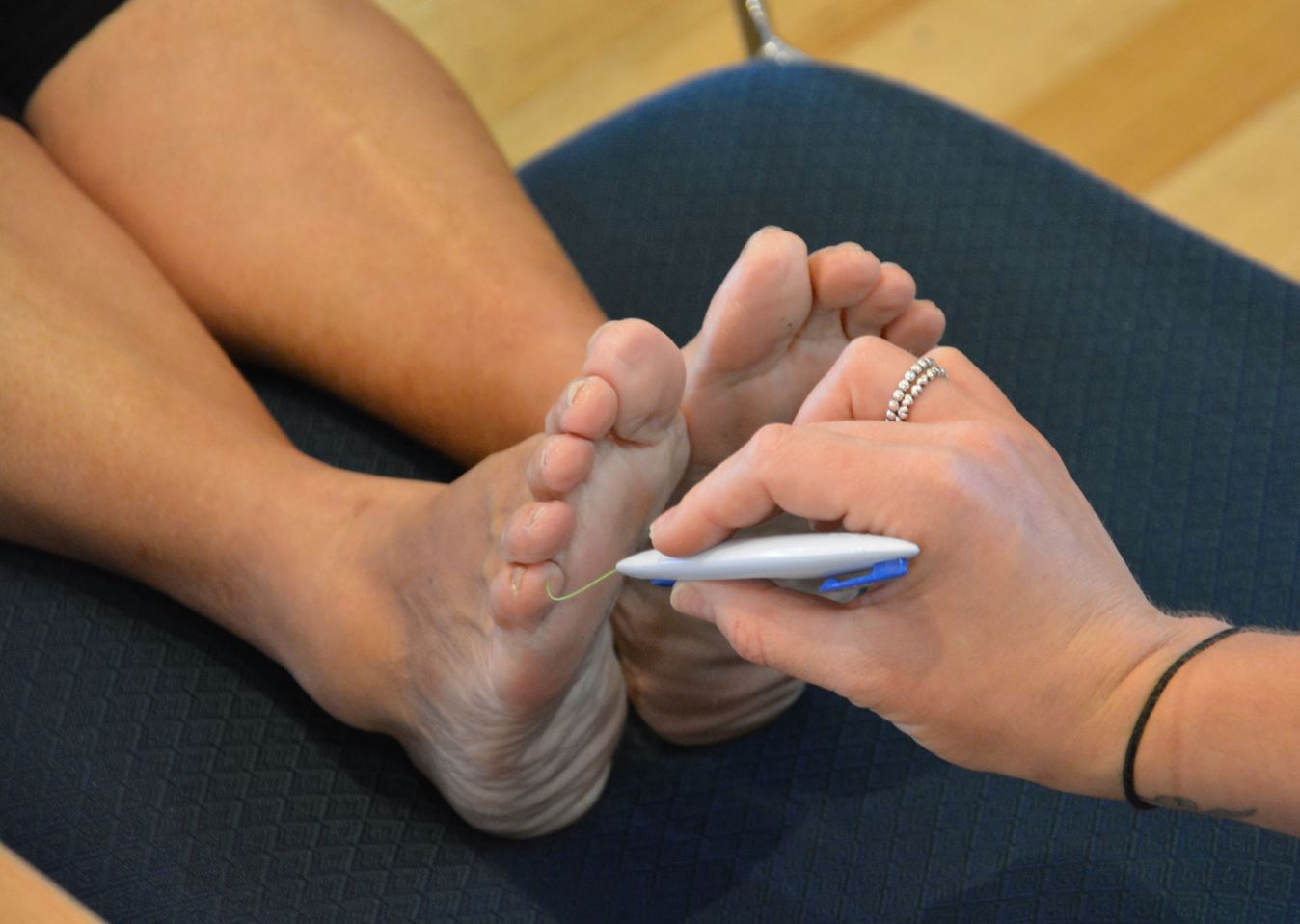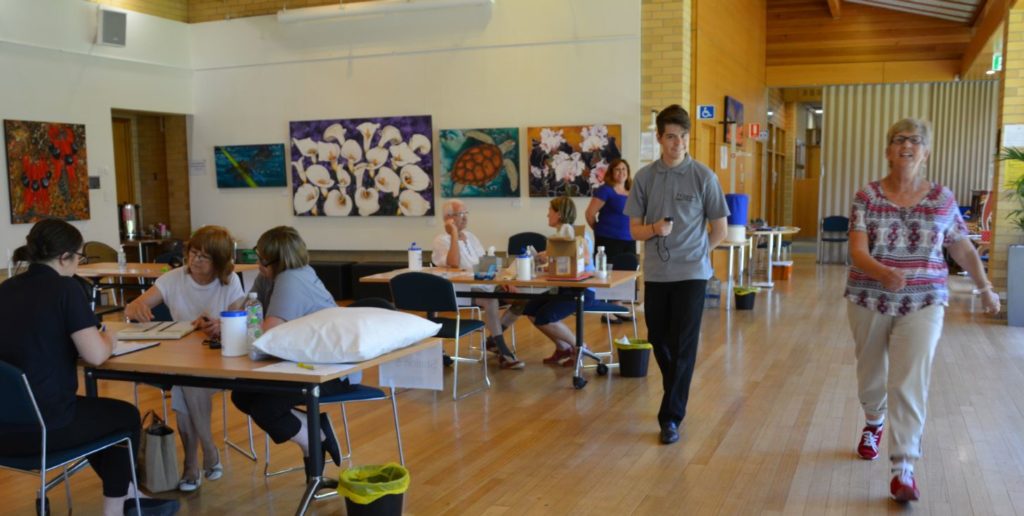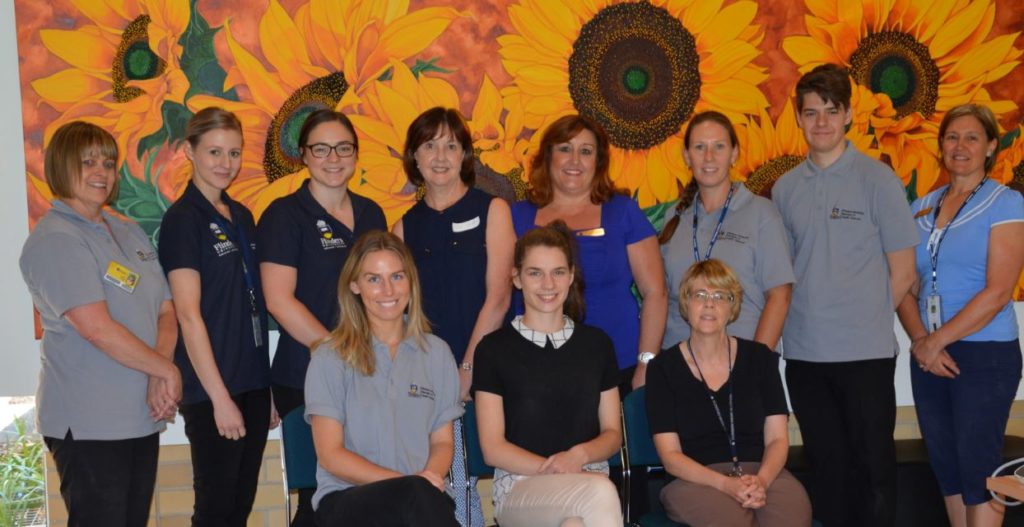
The health and wellbeing of people aged 40-75 could benefit from more advice and checks, according to Flinders University research.
Under a community research project entitled Inspiring Health, 120 Flinders health and social science students worked with the partner organisations including National Australia Bank to provide a health and wellness screen for citizens aged 40 to 75 years.
Over 19 weeks, 578 participants were assessed across 14 different venues to produce results that will be used by Flinders to determine future student placements in community venues.
Flinders students from the disciplines, including social work, Bachelor of Health Science, speech pathology, dietetics, nursing; Bachelor Clinical Science, audiology and physiotherapy gained 3,769 hours of valuable placement during the project.

Among participants, the students found high levels of functional hearing deficits and pelvic floor bother as well as high blood pressure, waist-hip ratio, waist circumference, body mass index and fat and muscle mass which could be better addresses with interventions and support.
The aim of the project, which covered metropolitan council areas including Holdfast Bay, Marion and Salisbury, was to observe ageing trajectories that might inform early management of health decline in the general community and to understand the diversity of needs.
The project’s leader and Flinders Strategic Professor Sue Gordon, Chair of Restorative Care in Ageing, says that most ageing research had focused on morbidity or frailty, but “there is little research on how to effectively intervene to enable healthy ageing”.
“One of the keys to better health for Australians is to offer healthy ageing assessments and interventions which will improve quality of life, increase capacity for participation of ageing Australians, decrease hospital presentations and support advancement towards personalised healthcare,” Professor Gordon says.

“The Flinders study provided a report for each participant and recommends educational resources and interventions to address the individuals health deficits.
“The results of the study indicate high levels of risk for metabolic conditions, and cardiovascular diseases. Community education about levels of exercise required for optimal effects, and simply walking at a faster speed, would be strategies to address this,” she said.
The project was initiated in response to a World Health Organisation (WHO) call for partners to participate in research and innovation to foster healthy ageing, including developing tools to assess and support clinical, community and population-based efforts to improve people’s ability to age healthily.
Inspiring Health aims to:
- Evaluate the health of 40-75 year old people in the community to investigate early signs of ageing
- Partner with local government, business, the community and education, and
- Provide an authentic ‘inter-professional learning’ placement for health and social science students
Healthy ageing is the process of developing and maintaining the functional ability that enables well-being in older age, Professor Gordon says.
“There is poor understanding of the trajectory of age-related changes in seemingly healthy communities that eventually result in functional decline and frailty.
“To support increased levels of activity, pedestrian-safe walkways and trails (away from main roads, well lit and suitable surfaces) should be made available and promoted accordingly.
“High levels of hearing loss was unexpected and has implications for screening service, education and provision of council services.
“As well, high levels of inability to balance should be addressed, particularly in relation to balance on a single leg with and without eyes closed.“
“Another goal of this project was to trial and provide strategies and ideas to help health policymakers to implement interprofessional education and collaborative practice that will optimise health outcomes,” Professor Gordon said.
The program could continue with further funding in 2018.
Further information is available on the Clinical Teaching and Education Centre website at ViTA, Flinders University.

